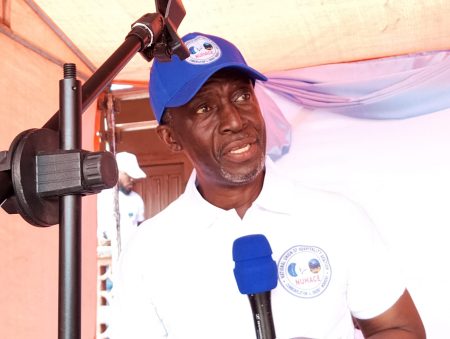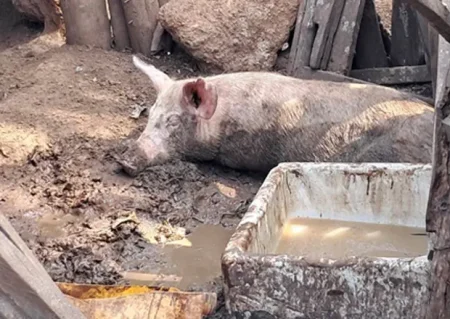The escalating crisis of opioid abuse among Ghanaian youth has prompted Dr. Richmond Adusei Poku, a member of the Executive Committee of the Pharmaceutical Association of Ghana, to issue a stark warning about the devastating consequences of this growing trend. He stresses the urgent need for comprehensive education on the detrimental effects of opioid misuse and abuse, highlighting the potential for addiction and its subsequent link to social vices such as armed robbery and murder. Dr. Adusei Poku’s concerns underscore the gravity of the opioid epidemic in Ghana, where an increasing number of young people are succumbing to the allure of these highly addictive substances.
Opioids, powerful painkillers with a high potential for addiction, exert their effects by binding to opioid receptors in the brain, spinal cord, and other areas of the body. This interaction disrupts pain signals and induces feelings of euphoria, which can be highly reinforcing and contribute to the development of dependence. While these drugs have legitimate medical uses for pain management, their misuse and abuse can have catastrophic consequences. Prolonged opioid use can lead to tolerance, requiring increasingly higher doses to achieve the desired effect, and physical dependence, resulting in withdrawal symptoms upon cessation. These factors contribute to the vicious cycle of addiction, trapping individuals in a pattern of compulsive drug seeking and use despite negative consequences.
The impact of opioid addiction extends far beyond the individual, wreaking havoc on families, communities, and society as a whole. The physical and mental health consequences can be severe, ranging from organ damage and overdose to depression, anxiety, and psychosis. Addiction often strains relationships with loved ones, leading to isolation and social dysfunction. Furthermore, the desperate need to obtain opioids can drive individuals to engage in criminal activities like theft and robbery to fund their addiction, contributing to an increase in crime rates and a decline in community safety. The potential for overdose is a constant threat, as even a slight miscalculation in dosage can be fatal.
Dr. Adusei Poku emphasizes the crucial role of education in combating the opioid crisis. He advocates for a multi-pronged approach, involving stakeholders from all levels of society. He calls for early intervention, suggesting that education on the risks associated with drug use should begin in primary schools, ensuring that children grow up with an understanding of the potential dangers. This early education can lay the foundation for informed decision-making and help instill a sense of responsibility towards personal health and well-being. Furthermore, he proposes public awareness campaigns utilizing various media channels, including national television, radio, and public spaces like bus terminals, to reach a wider audience and disseminate vital information about the risks of opioid abuse. This comprehensive approach aims to create a society-wide understanding of the opioid crisis and empower individuals to make healthy choices.
Beyond education, Dr. Adusei Poku urges the National Narcotics Commission to intensify its efforts to curb the influx of opioids into the country. Restricting the availability of these drugs is essential in preventing their misuse and abuse. This involves strengthening border controls, enhancing surveillance mechanisms, and collaborating with international partners to disrupt drug trafficking networks. He stresses the importance of holding accountable those involved in the illegal distribution of opioids, as they play a significant role in fueling the epidemic. Through stringent law enforcement and effective prosecution, the supply of these dangerous substances can be reduced, thereby limiting access for vulnerable individuals.
The opioid crisis in Ghana demands a comprehensive and collaborative response. Dr. Adusei Poku’s call to action underscores the urgency of the situation and the need for a multi-faceted approach. By prioritizing education, strengthening preventative measures, and enhancing law enforcement efforts, Ghana can effectively address this growing epidemic and protect its youth from the devastating consequences of opioid addiction. The fight against opioid abuse requires a sustained commitment from all stakeholders, working together to create a healthier and safer future for the nation. Only through concerted efforts can Ghana effectively combat this pressing public health challenge and safeguard the well-being of its citizens.














